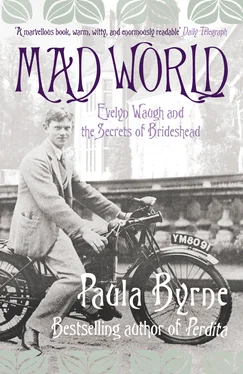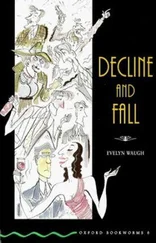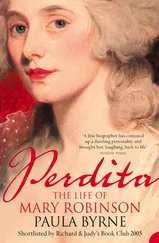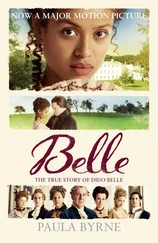Evelyn’s new friends brought him into a circle that was altogether much grander than any he had hitherto known. He found himself among an extraordinary set of young men who would continue to make waves after they left Oxford. There were other pairs of brothers besides the aristocratic Lygons. First the Duggan boys, Alfred and Hubert. Alfred had the aura of a ‘full-blooded rake of the Restoration’ and his younger brother Hubert – Anthony Powell’s Eton messmate – was ‘a delicate dandy of the Regency’. Then there were the Plunket Greenes, David and Richard. Both were musical. David was a gentle giant who loved jazz. Many of these young men ended up as alcoholics or suicides (or both). But to young Evelyn they were glamour itself. He and most of his friends were often drunk, whereas Alfred Duggan was always drunk. The Duggans, stepsons of Lord Curzon, Chancellor of the University, had vast riches at their disposal.
Many members of the Hypocrites, including Evelyn, became members of another fraternity, The Railway Club – motto: ‘There is no smoke without fire.’ Its founder was John Sutro, a Trinity College undergraduate from a wealthy Jewish family. His home was where Evelyn first tasted plovers’ eggs. He became a true friend. Evelyn remembered his loyalty and hospitality, describing him as ‘above all humorous; a mimic of genius … he has never wearied of a friend or quarrelled with one’.
The Railway was so called because Sutro was an aficionado of nighttime journeys on steam trains. Club members would travel around the country, dining on the outward leg and sharing post-prandial drinks in the train bar on the return to Oxford. Dinner jackets were always worn. Hugh Lygon was a member. Even after Oxford, the club continued to hold dinners. Over time, the menus grew more and more elaborate, while, in order to accommodate them, the journeys became longer and more adventurous.
Hugh Lygon’s Oxford career was not devoted to academic study. An evening in Magdalen, recorded in detail by Terence Greenidge in his book Degenerate Oxford? , may serve as the epitome of the Lygon brothers’ life among the dreaming spires.
Elmley was something of a fish out of water. He had matriculated at Magdalen, a college renowned for aristocratic breeding and sporting endeavour. But he disliked rowing intensely and thought that hunting was cruel – a belief translated by Waugh into a trait of Sebastian Flyte’s older brother ‘Bridey’, who refuses to ride to hounds. It was this unorthodox streak in Elmley’s character that took him among the Hypocrites, where Hugh was happy to join him. Elmley was clearly recognisable as Hugh’s brother, with similar but not such classical features. Even as an undergraduate he had a tendency towards the portly. Evelyn described him as ‘a solid, tolerant, highly respectable’ Magdalen man. But there is a dig in his observation that Elmley was ‘voluntarily rusticating with the yeomanry’.
One evening, in a spirit of mischief, Elmley invited a group of his bohemian Hypocrite friends to a Magdalen ‘wine’ – a college entertainment evening dominated by the Athletes. Harold Acton turned up in a high-necked scarlet jumper, David Plunket Greene in flowing trousers and a broad-brimmed hat, Terence Greenidge in a black sports coat with Russian-style fur-embroidered edges. Robert Byron – who shared Evelyn’s love for all things Victorian – dressed as Prince Albert, and Hugh was as Hugh always was, a representative, in Greenidge’s words, of ‘the slightly effeminate, elegant type of jeunesse dorée’ . No sooner had they arrived than a Magdalen undergrad pointed at Terence’s fur collar and said ‘Jesus Christ, what’s that?’
In hall, they drank fine port and joined in with some enthusiastic singing. But Harold insisted on leaning over the chair in front of him and loudly addressing Hugh as ‘darling’. To which an Athlete countered: ‘None of your tricks here!’
There was then a break, during which they all went down into the Oxford night for ‘a breather’. Six members of the rowing crew spotted Elmley and Plunket Greene in the quad. ‘Here are two of those bloody Aesthetes,’ they said; ‘Let’s chuck them in the river.’ But Elmley was a burly six-footer and Plunket Greene even taller. The rowers had second thoughts and retreated, saying: ‘Let’s have another drink first, and chuck them in the river afterwards.’ At the end of the evening, Elmley had to hurry his friends out of the college in order to save them from a large group of now very drunk Athletes. Hugh just drifted away. He was, according to Greenidge, more secure than the others ‘because the jeunesse dorée type is not considered pre-eminently Aesthetic and Athletes are apt to respect a man with an Honourable in front of his name’.
Hugh’s life at Oxford developed into one of idleness alleviated by pranks. On one occasion he and a group of friends staged a mock duel, complete with pistols and seconds, having previously leaked the news of it to the editor of the Oxford Times in an effort to provide a lively story to increase the paper’s flagging circulation. Stephen McKenna, a gentleman of leisure who wrote popular fiction about aristocratic life, used the incident as the basis for a novel, published in 1925, called An Affair of Honour . He dedicated it ‘To Hugh Lygon, to whom I am indebted for the seed of truth from which this tree of fantasy has grown’.
‘The record of my life there,’ wrote Waugh of his Oxford years, ‘is essentially a catalogue of friendships.’ In his view, what undergraduates learned they learned from one another, not from the dons: ‘the lessons were in no curriculum of scholarship or morals’. He also admitted that ‘Drinking had a large part in it.’
Evelyn was a noisy drunk. Once when asked why he was so aggressively loud, he responded: ‘I have to make a noise because I am so poor.’ This reply delighted his new friends: it had the right sort of panache. Shared drunkenness became a bond. Beer was cheap at the Hypocrites (8 pence a pint), enabling Evelyn to indulge himself to excess. The sight of a drunken Evelyn became familiar: ‘very pink in the cheeks, small, witty and fierce, quite alarming, but fascinating’. He lit up the gloomy room like ‘a bright spark from the fire’, though once he got into trouble for smashing up the furniture with that cudgel-like stick of his.
He was appointed Hypocrites club secretary at his very first meeting. He performed no duties in the role. Alfred Duggan, who was frequently rendered speechless with drink, began to invite Evelyn to luncheon parties. At last the boy from suburban Golders Green and minor public school Lancing was moving among the wealthy, the aristocratic and the debauched. Duggan instructed his scout always to lay an extra place at the luncheon table just in case he had invited someone when he was drunk. The place was always occupied. There were often thirty or forty guests and the parties went on for most of the day. In winter, they drank mulled claret followed by port until long after dusk. Waugh learnt how to finger long-stemmed glasses, sniff the wine and hold it up to the light that slanted in through the narrow Gothic windows. Often Duggan had to be put to bed by his friends.
The Hypocrites’ Club found a friend in John Fothergill, proprietor of an old inn called the Spreadeagle at Thame, a town about fifteen miles from Oxford. This was a location where club members could indulge in gaudy nights far from the patrols of the ‘bulldogs’ (the university’s bowler-hatted private police force). Fothergill was an eccentric former art dealer and historian who was very sympathetic to Harold Acton and his set, though less kind to more run-of-the-mill guests. He once charged a party extra money for being ugly. He seemed especially partial to the antics of the Hypocrites; their aristocratic connections no doubt added to their allure.
Читать дальше












